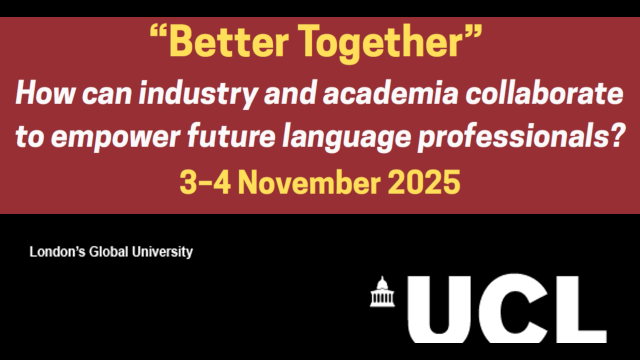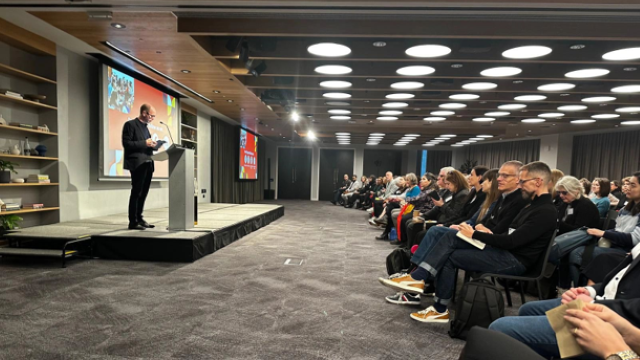-
QUALIFICATIONS
- For Linguists Worldwide
- For UK Public Services
- Preparation
- Policies & Regulation
-
MEMBERSHIP
- Join CIOL
- Professional Membership
- Affiliate Membership
- Chartered Linguist
- Already a member?
- Professional conduct
- Business & Corporate Partners
-
LANGUAGE ASSESSMENTS
- English
- All Other Languages
-
EVENTS & CPD
- Webinars & Events
- CIOL Conferences
- Networks
- CIOL Mentoring
-
NEWS & VOICES
- News & Voices
- CIOL eNews
- CIOL Awards
- The Linguist Magazine
- Jobs & Ads
-
RESOURCES
- For Translators & Interpreters
- For Universities & Students
- Standards & Norms
- CIOL & AI
- All Party Parliamentary Group
- In the UK
- UK Public Services
- Find-a-Linguist
NEWS & VOICES
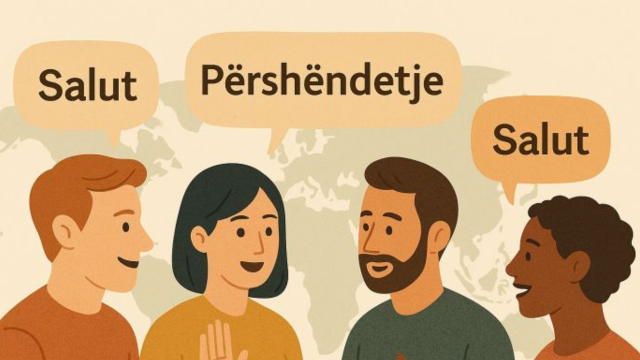
By Chris Hughes
Very often, when we're asked to promote the learning of languages in school, the focus is on how languages benefit your career. And that's admirable and valid, of course. But learning another language is about so much more than that. There's a human side to learning languages that opens up full, genuine experiences, and brings benefits and...
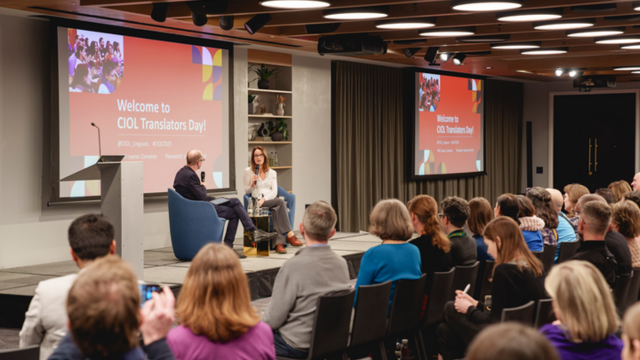
By Dom Hebblethwaite, CIOL Head of Membership
The 2025 Chartered Institute of Linguists conference season in March brought together hundreds of language professionals for what I found a series of really energising and enriching events. With the in-person Translators Day and Interpreters Day held at the impressive Convene venue at 22 Bishopsgate (...

By Mark Robinson
Continuing Professional Development (CPD) is an important subject for professional linguists – and rightly so. For translators, interpreters, project managers – and indeed for many other roles, some of which are evolving in the profession – it matters. CPD ensures that linguists maintain and enhance their languages...

The Linguist Editorial Board member Professor Binhua Wang invited several MA translation master’s students in Chinese to translate one feature article from each of the four issues of The Linguist in the past year. Each translation has been translated by one, then revised by another, and then proof-read by their translation tutor.
Binhua’s initiative seeks...
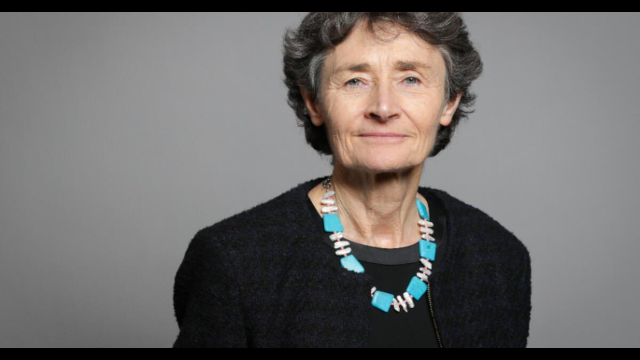
Baroness Morris of Yardley, who is chair of the House of Lords Public Services Committee, has written about their inquiry in the Law Gazette.
Some of the key points are:
"The House of Lords Public Services Committee inquiry into Interpreting Services in the Courts took evidence from court officials, barristers, solicitors, the Ministry of Justice (...

Recent CIOL Voice’s contributor John Claughton, who is former chief master of King Edward’s School, Birmingham, and co-founder of WoLLoW (World of Languages, Languages of the World) has written a powerful article in the TES Magazine. Some of his key points are here:
Languages are squeezed out in UK schools
In a land dominated by literacy and...

Translating her grandfather Shemsi Mehmeti’s novel, R B Castrioti learns what translation can reveal about ourselves, and others
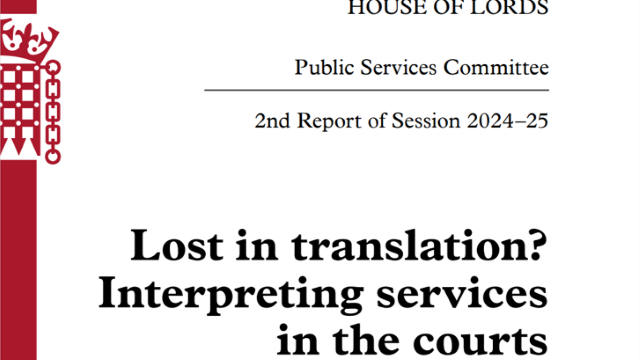
Lost in translation? Interpreting services in the courts
The UK House of Lords Inquiry into Interpreting and Translation Services in the Courts has now reported available here and below.
In the report summary, key points include:
The Chartered Institute of Linguists (CIOL), Incorporated by Royal Charter, Registered in England and Wales Number RC 000808 and the IoL Educational Trust (IoLET), trading as CIOL Qualifications, Company limited by Guarantee, Registered in England and Wales Number 04297497 and Registered Charity Number 1090263. CIOL is a not-for-profit organisation.

